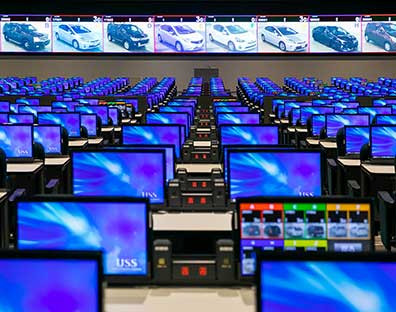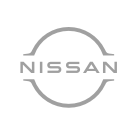
Introduction to Japanese Car Auctions
Japanese car auctions have a rich history that has seen them evolve into a major hub for buyers and sellers of used vehicles. These auctions have become synonymous with quality, reliability, and competitive prices. In this article, we will delve into the fascinating journey of Japanese car auctions, from their humble beginnings to the modern online platforms we see today.
The History and Evolution of Japanese Car Auctions
The appearance of car auctions in Japan can be traced back to the 1960s when the concept was first introduced by the Japan Used Motor Vehicle Exporters Association. Initially, these auctions were primarily attended by local dealers and exporters. However, as the demand for Japanese vehicles grew worldwide, so did the popularity of these auctions.
In the 1980s, the Japanese car auction market experienced a significant transformation.
Three of the most popular Japanese car auction platforms are USS Auto Auction, Aucnet, and i-Auc. Established in 1980 Aichi Automobile General Services Co., Ltd., the predecessor of USS Auto Auction and adopted USS as the brand name. USS Auto Auction, is the largest auction house in Japan. It offers a wide range of vehicles and has a reputation for providing accurate vehicle information and reliable customer service.
Aucnet, established in 1984, focuses on providing high-quality services and has a strong presence in the Japanese market. I-Auc, founded in 2001, is known for its extensive network across Japan, making it a convenient option for buyers and sellers.
These platforms have played a crucial role in shaping the Japanese car auction industry and have become trusted names in the market. Their commitment to transparency, reliability, and customer satisfaction has contributed to the growth and success of Japanese car auctions.
The Rise of Online Japanese Car Auctions
The advent of the internet in the 1990s further propelled the growth of online Japanese car auctions. USS Auto Auction and Aucnet launched online Japanese car auction platform, buyers and sellers could participate in auctions remotely. This innovation revolutionized the industry and opened up new opportunities for international buyers. This shift towards online auctions eliminated geographical barriers and allowed buyers from around the world to access a wide range of used Japanese cars.
The online format also brought about increased transparency and efficiency in the auction process. Buyers could now view detailed information and photographs of the vehicles, enabling them to make informed decisions. Additionally, online bidding systems made the auction process more competitive, resulting in fairer prices for both buyers and sellers.
Advantages of Buying Cars through Japanese Car Auctions
There are numerous advantages to buying cars through Japanese car auctions. Firstly, the variety of vehicles available is unparalleled. These auctions offer a vast selection of used Japanese cars, ranging from popular models to rare imports. Whether you are looking for a compact sedan or a luxurious sports car, you are bound to find it in a Japanese car auction.
Secondly, Japanese cars are renowned for their exceptional quality and reliability. The stringent inspection processes conducted before vehicles are listed for auction ensure that only the best-conditioned cars make it to the market. Furthermore, the Japanese culture of regular maintenance and care for vehicles means that even used cars have often been well looked after.
Lastly, Japanese car auctions offer competitive prices. Due to the high volume of vehicles available and the competitive bidding process, buyers can often find great deals. This makes Japanese car auctions an attractive option for both individuals looking for a personal vehicle and business owners in the automotive industry.
How to Participate in a Japanese Car Auction
Participating in a Japanese car auction can be a straightforward process. The first step is to register with the auction platform of your choice. This typically involves providing some personal information and agreeing to the platform's terms and conditions. Once registered, you will have access to the auction listings and can start researching the vehicles you are interested in.
Before the auction, it is essential to thoroughly inspect the vehicles you are interested in. While online auctions provide detailed information and photographs, it is always advisable to get a professional inspection done to ensure there are no hidden issues. This will help you make an informed decision and avoid any potential pitfalls.
During the auction, you can place your bids either manually or through an automated bidding system. It is crucial to set a budget and stick to it to avoid overspending. Keep an eye on the bidding activity and be prepared to adjust your strategy accordingly. Once you have successfully won a bid, you will need to complete the necessary paperwork and arrange for the transportation of the vehicle to your desired location.
Tips for Buying Used Japanese Cars at Auction
Buying a used Japanese car at auction can be a rewarding experience if approached with caution and proper research. Here are some tips to help you make the most of your auction experience:
- Research the market: Familiarize yourself with the current market trends and prices of the vehicles you are interested in. This will enable you to spot a good deal and avoid overpaying.
- Set a budget: Determine your budget before entering the auction and stick to it. It is easy to get caught up in the excitement of bidding, but it is essential to remain disciplined and avoid overspending.
- Inspect the vehicles: Take advantage of the detailed information and photographs provided by the auction platform, but also arrange for a professional inspection to ensure the vehicle's condition matches the description.
- Understand the grading system: Japanese car auctions use a grading system to indicate the condition of the vehicles. Familiarize yourself with this system to accurately assess the quality of the cars you are interested in.
- Consider additional costs: In addition to the bidding price, factor in other costs such as auction fees, transportation, and import duties. These expenses can significantly impact the final cost of the vehicle.
By following these tips, you can navigate the Japanese car auction market with confidence and increase your chances of finding the perfect used Japanese car.
Understanding the Grading System in Japanese Car Auctions
Japanese car auctions utilize a grading system to provide a standardized assessment of the condition of the vehicles. This grading system is based on a predetermined set of criteria and helps buyers evaluate the quality of the cars they are interested in. Understanding the grading system is crucial to making informed decisions and ensuring you purchase a vehicle that meets your expectations.
The grading system typically consists of a letter and a number. The letter represents the overall condition of the vehicle, while the number provides a more detailed assessment. For example, a car with a grade of "A" indicates excellent condition, while a grade of "C" signifies average condition.
It is important to note that the grading system can vary slightly between auction houses, so it is essential to familiarize yourself with the specific grading criteria used by the auction platform you are using. Additionally, it is advisable to rely on the information provided by professional inspectors who conduct thorough inspections of the vehicles before they are listed for auction.
Challenges and Risks of Buying Cars through Japanese Car Auctions
While Japanese car auctions offer numerous advantages, there are also challenges and risks that buyers need to be aware of. One of the main challenges is the language barrier. Most auction platforms primarily operate in Japanese, which can make it difficult for non-Japanese speakers to navigate the auction process. However, some platforms offer translation services or have English interfaces to cater to international buyers.
Another risk is the inability to physically inspect the vehicles before purchasing. While auction platforms provide detailed information and photographs, there is always a chance that the actual condition of the vehicle may differ. It is crucial to conduct thorough research and arrange for professional inspections to minimize this risk.
Additionally, there may be additional costs involved, such as import duties and transportation fees, which can significantly impact the final cost of the vehicle. Buyers must factor in these expenses when budgeting for their purchase.
Conclusion: The Future of Japanese Car Auctions
Japanese car auctions have come a long way since their inception, evolving into a global marketplace for used vehicles. The combination of quality vehicles, competitive prices, and transparent auction processes has made them a preferred choice for buyers worldwide.
Looking ahead, the future of Japanese car auctions looks promising. The growing demand for used Japanese cars, coupled with advancements in technology, suggests that online auctions will continue to thrive. With improved accessibility, language support, and enhanced inspection processes, Japanese car auctions are poised to further expand their reach and cater to a larger global audience.
If you are looking for a reliable and cost-effective way to purchase a used Japanese car, contact us. Our company can find your dream car at a competitive price.












